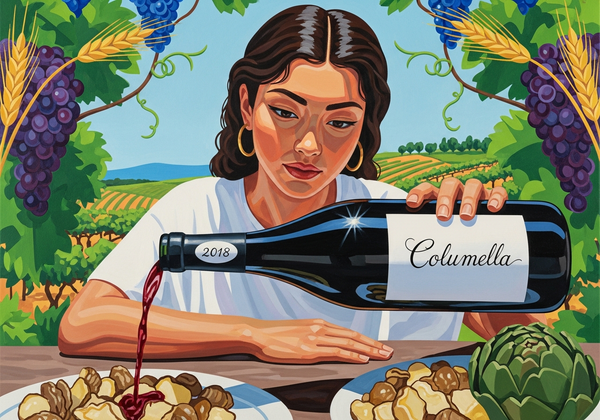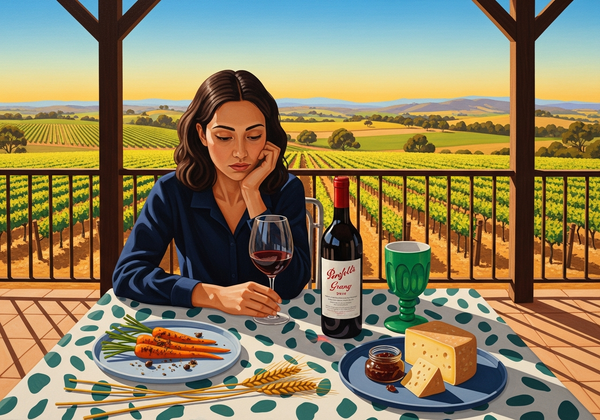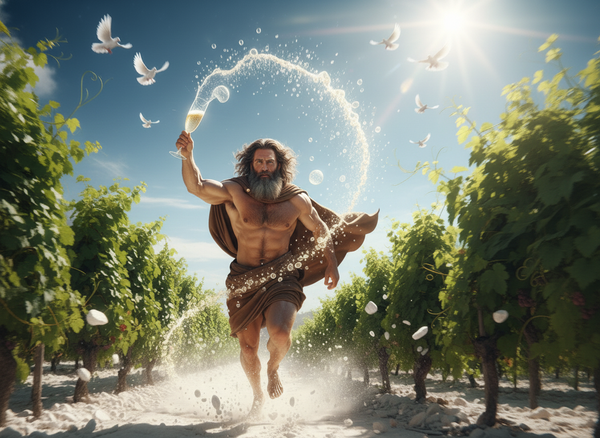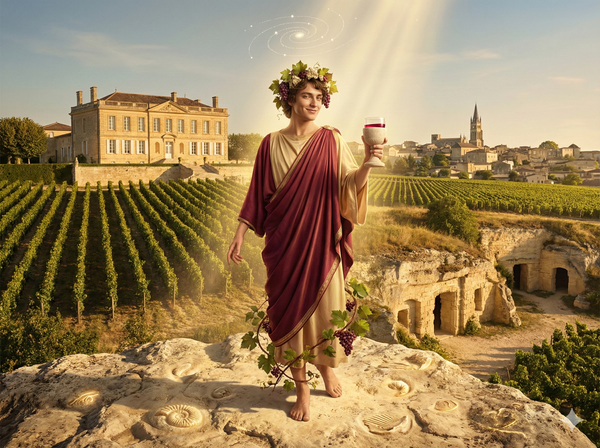Stone, Soul, and Silence: The Eternal Elegance of Domaine Armand Rousseau
Explore the complete history of Domaine Armand Rousseau — from humble beginnings in Gevrey-Chambertin to global reverence. Discover how generations of the Rousseau family shaped Burgundy’s soul through patience, purity, and devotion to Pinot Noir.
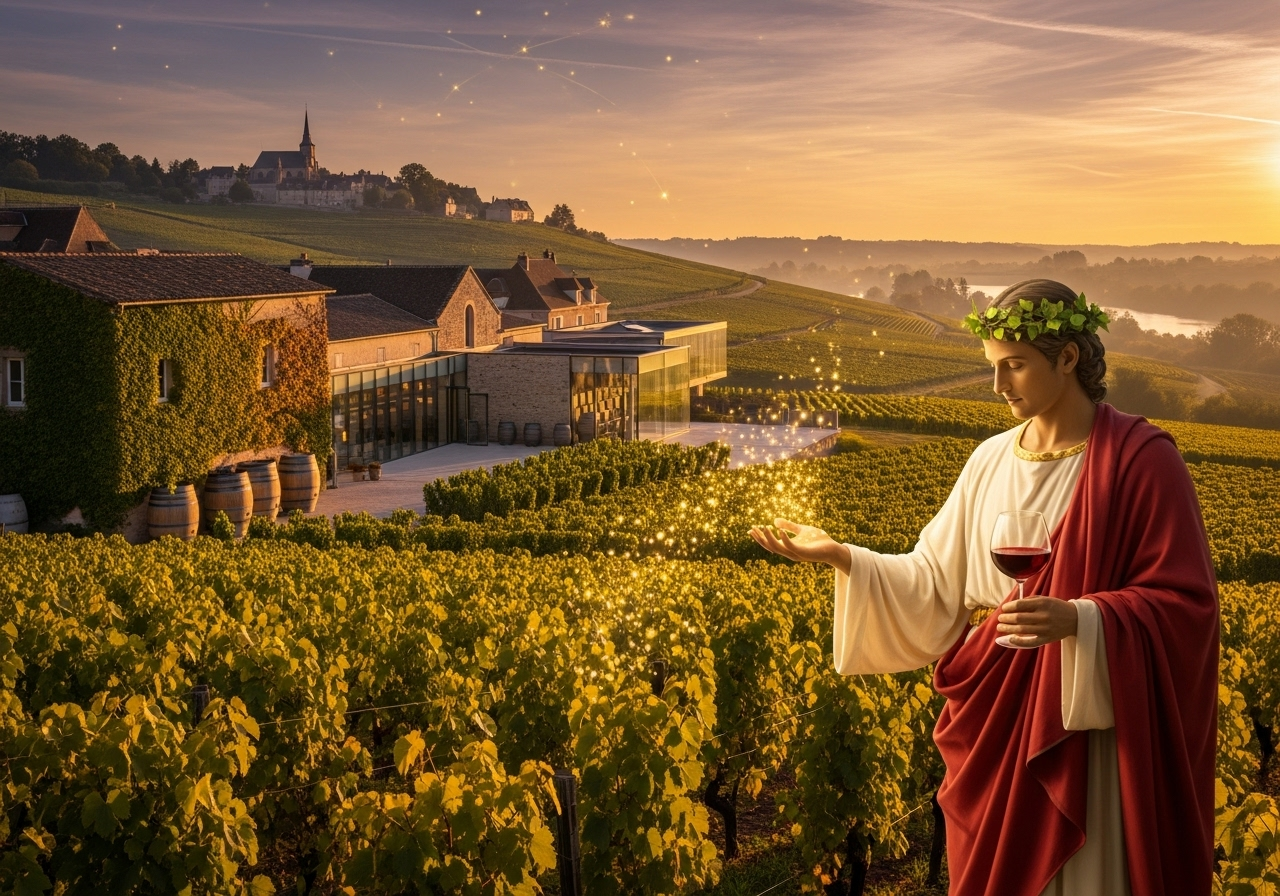
How one man’s devotion turned Gevrey-Chambertin from humble slopes into sacred ground.
The Call of the Côte d’Or
In the beginning, there was stone. Ancient limestone, fractured by time and tempered by the hands of monks. Over centuries, it birthed vines that clung to it like faith to prayer. From these slopes came the whisper of a name—Gevrey-Chambertin—a place where Burgundy found its heartbeat.
It was here that Armand Rousseau, born in 1884, first listened to the land. As the god of wine, I have seen many mortals claim mastery over soil, yet few have truly served it. Rousseau was one of the rare ones—a man who treated vine and terroir not as instruments, but as equals.
The Humble Beginnings of a Legend
When Armand inherited a handful of vineyard parcels from his family, Burgundy was still a patchwork of farmers and négociants. He began as a winegrower and cellar master, selling to local merchants. But in 1919, when others saw only hardship, Rousseau saw destiny.
He bottled his own wine—a radical act at the time—and inscribed his name upon it: Domaine Armand Rousseau. Thus began a quiet revolution.
Through patience and foresight, he acquired parcels in Burgundy’s greatest vineyards: Clos des Ruchottes, Clos Saint-Jacques, and Chambertin itself. Each acquisition was not ambition, but alignment—a tuning of his destiny with Burgundy’s own sacred rhythm.
Between Wars and Rebirth
The first half of the 20th century was not kind. Phylloxera, wars, and depression tested every grower’s resolve. Yet Rousseau persisted. His belief in the authenticity of Pinot Noir was unshakable.
By the time peace returned to Europe, collectors from London and New York were whispering the Rousseau name as if invoking a prayer. His wines—silken yet structured, fragrant with violets, cherries, and forest floor—embodied what Burgundy aspired to be: clarity without arrogance, power without weight.
In 1959, when Armand passed, his son Charles Rousseau inherited both the vineyards and the philosophy. Under Charles, Domaine Rousseau became synonymous with the purest expression of terroir—a beacon for all of Burgundy.
The Modern Stewardship: Eric Rousseau and the Age of Transparency
Today, under Eric Rousseau, the domaine has entered its third act. Yet remarkably, nothing essential has changed.
No heavy machinery. No over-extraction. No compromise.
Instead, there is faith—faith in the vines that have seen centuries pass and still offer grace.
Eric’s methods are deceptively simple: minimal intervention, natural yeasts, restrained oak, and an ear tuned to what the vintage is saying. He listens as his grandfather did.
And the results? Wines that feel less made than revealed. Chambertin that breathes nobility. Clos Saint-Jacques that sings in quiet, haunting tones. Even in youth, they seem ancient—like wisdom captured in liquid form.
The Wines: Poetry in Precision
If Hermitage is a sermon in granite, Rousseau’s Burgundy is a sonnet in limestone.
There is a precision here, but also sensuality—a softness that never weakens, a perfume that lingers like memory.
Each vineyard is a verse:
- Clos de Bèze: Grand and resonant, the organ note of Burgundy.
- Chambertin: Pure command—structure, spice, immortality.
- Clos Saint-Jacques: The scholar-poet, graceful yet profound.
To taste Rousseau is to commune with centuries. It is Burgundy distilled into its purest form: not luxury, but truth.
Liber’s Reflection: The Grace of Restraint
As I, Liber, lift my glass in reverence, I see in Rousseau the rarest of virtues—restraint.
He and his heirs have shown that true mastery lies not in conquering nature, but in listening to it.
Their work reminds us that greatness is often quiet. That the most profound power is the one that whispers.
Domaine Armand Rousseau stands not just as a producer, but as a prayer—a living testament to the harmony between man, vine, and earth.
And as the sun sets over Chambertin’s slopes, the vines exhale, and I, god of wine, exhale with them.
Because in that silence, Burgundy speaks.


